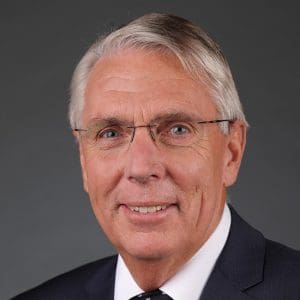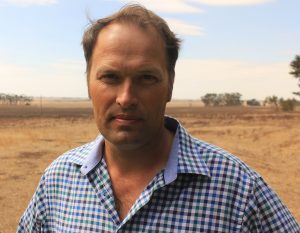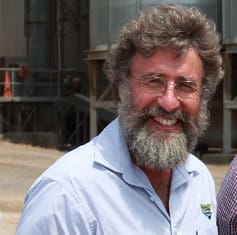
Nationals leader Peter Walsh
VICTORIAN red meat processors in communities with no COVID-19 cases should not have their workforce levels restricted, according to Nationals leader Peter Walsh.
The State Government’s roadmap out of COVID-19 lockdowns yesterday provided little detail for processors, who are being supported by farmers in seeking an easing of the 33 percent workforce cuts to 20pc and site-by-site risk assessments.
Victorian Premier Daniel Andrews today said the workforce restrictions would stay in place for the forseeable future, but Mr Walsh said the industry did not need a roadmap based on restriction.
“They need a roadmap that allows them to open up.
“In the communities where there is no COVID there should be no restrictions on the workforce, provided the employer has a COVID work plan that assesses and mitigates the COVID risk coming into the workplace and local community,” he said.
“If the lockdowns continue, the processers will not have enough capacity to manage the spring flush (of lambs) and this will lead to a continual decline in livestock prices, to the detriment of farmers and the Victorian economy.”
Mr Walsh said regional Victorians have done a good job in following health advice and suppressing the virus.
“There are 27 local government areas that qualify to moving to the next step of easing restrictions, and to do otherwise will see the Premier punish local communities with his city-centric policies.
“Daniel Andrews needs to come up with a plan that allows local communities to support local businesses, and the Premier should do this immediately.”
Peak farmer bodies seek new deal for processors
Peak farmer bodies seek easing of processor workforce restrictions

VFF president David Jochinke.
The Victorian Farmers Federation yesterday called for the Victorian Government to change the industry restart roadmap for the meat processing industry and allow regional Victoria to open up where safe to do so.
VFF president David Jochinke said while changes, including a return to school for regional students would be well-received by the farming community, the body held concerns about the government’s hard-nosed approach to the meat processing sector.
“Our message on abattoirs hasn’t changed and we are in lockstep with the meat processing sector on this: we need to return to at least 80 percent processing capacity as soon as possible.
“The current proposal for all metropolitan and regional meat processing facilities to remain highly restricted until at least 23 November is simply not workable,” he said.
“If we don’t get to 80 percent soon there will be lambs that cannot get processed, limited capacity to process grass fed beef and continued uncertainty in the pork and poultry industries that are already operating on a knife edge.”
“The risk to animal welfare is just unpalatable,” he said.
“Add to that the potential impact on markets and the current proposal will be disastrous for industry and the food supply chain.”
The VFF would also like to see regional differences recognised in the pathway out of restrictions for Victoria.
“Where there are no COVID-19 cases in regional Victoria we think a common sense, risk-based approach to the relaxation of restrictions is appropriate.
“Regional Victorian’s who can safely return to COVID normal should be able to do so as soon as possible,” Mr Jochinke said.
“The farming community is committed to doing its bit to stop the spread by adhering to the industry restart roadmap for agriculture.”
NSW Farmers
NSW Farmers said it believed dramatic price drops in the sheep meat and goat industries had been caused by sudden disruptions to the meat processing landscape.
The body said critical Victorian processing plants have been forced to close or operate below capacity amid COVID-19 restrictions, contributing to softening returns for farmers.

NSW Farmers president James Jackson
NSW Farmers president James Jackson said this change comes at a critical stage for NSW producers, many of whom are looking to recover from the economic impacts of drought.
“It’s not uncommon for producers to have held on to stock during the drought, absorbing the costs of feed with the expectation prices would rise and they’d be able to recoup losses afterward.
“Livestock producers are going to have limited numbers of stock to market in the rebuilding period post drought,” Mr James Jackson said.
“It would be particularly cruel for producers who have spent a fortune on keeping animals going through the drought to be denied a fair return on the stock they have to market because of labour issues in the processing industry.”
Mr Jackson said earlier in the year, lamb prices were sitting around $9 a kilogram, but were nbow closer to $5 a kilogram.
“Producers who purchased store lambs earlier in the year are also set to lose out, facing much lower market prices despite fattening and improving the stock.”
Mr Jackson said a high percentage of workers in processing plants are from overseas on short term visas.
“The crisis has meant some are no longer able to stay in Australia.
“Others have simply had their access to work impeded by the restrictions and quarantine requirements,” he said.
“We need appropriate permit systems for agriculture to ensure flow of workforce across borders, and we need solutions around entry visas.”
“Processing plants have high fixed overheads, so they can’t afford workplace disruptions like these,” Mr Jackson said.

HAVE YOUR SAY